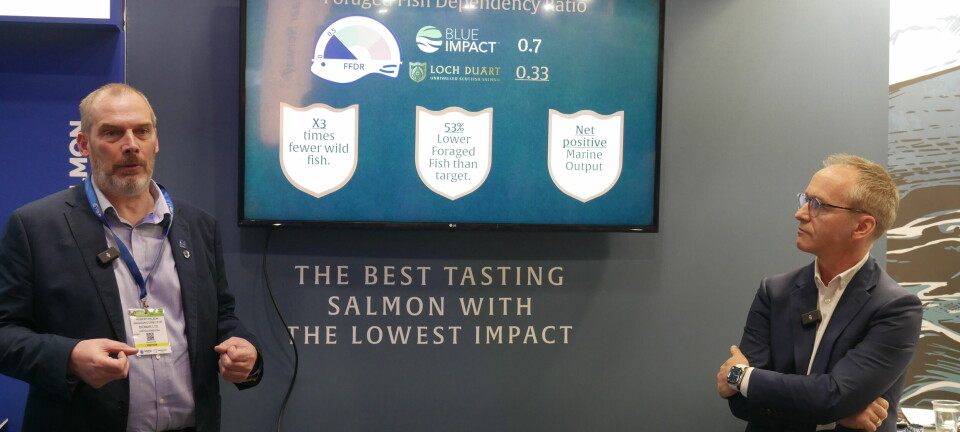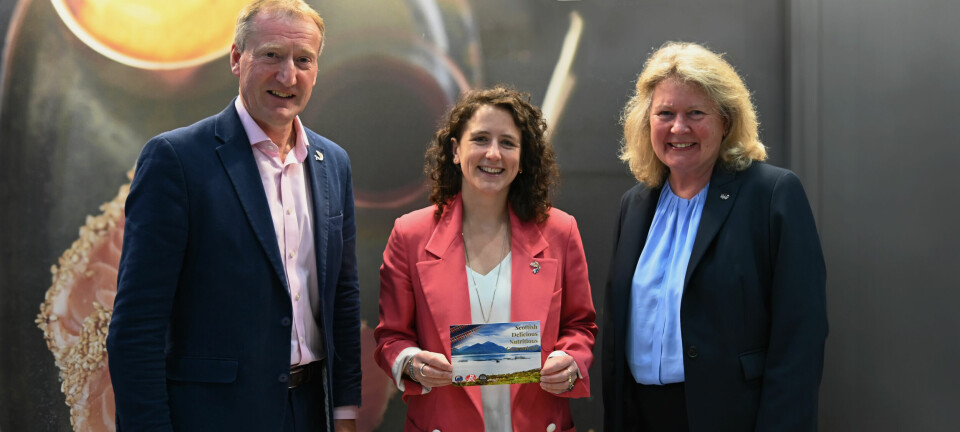Stress reactions in fish are affected by selective breeding and feed supplements

The biological reaction generated by stress is necessary for survival but can be life-threatening if it lasts too long. Under stress, the signal substances serotonin and dopamine are released in the brain and these signals control the level of the stress hormone cortisol in the blood. Chronically high levels of cortisol lead to changes in behaviour such as an increased tendency to social subordination and loss of appetite. Farmed fish are exposed to stress in many situations throughout their lifetime due to being moved from place to place, vaccinations, high population density and transport. These stress factors can at worst harm fish welfare and lead to lower growth and production. Dean Basic’s study has increased our understanding of the mechanisms leading to stress in fish and our ability to find good ways of reducing stress, so that the quality of life and production environment for farmed fish is enhanced. Basic studied the effects of cortisol on the behaviour of rainbow trout by adding cortisol and inhibitors of this stress signal to the fish feed. His research also studied inherited variations in the stress reaction by examining behavioural differences between families of rainbow trout showing either a high or low cortisol response to stress. Basic analysed territorial aggression towards individuals of the same species and changes to eating behaviour triggered by the introduction of an alien object into the fish’s territory. In addition, Basic investigated whether a feed supplement tryptophan, which is converted to serotonin in the brain, could reduce biological stress reactions in cod and salmon. His studies showed that higher levels of cortisol in the blood reduced aggression in trout and that the signals triggering these effects were transmitted by means of specific cortisol receptors. Differences in behaviour were detected in families with a high and low cortisol response respectively, but the differences were only noticeable when the fish were exposed to mild stress. This indicates that there is no strong connection between behaviour and the cortisol stress levels in the blood of these families. Dean Basic also found that the calming effect that tryptophan-enriched feed has on the stress reaction is different in cod than in salmon. In cod, the calming effect ceased only one day after the fish stopped receiving tryptophan-enriched feed. In contrast, salmon showed a stronger stress reaction during the first day after feeding with tryptophan had ceased. However, a stress-lowering effect, equivalent to that in cod, was detected in the salmon 10 days after feeding with tryptophan was stopped. These results indicate that stress levels in farmed fish can be improved by the correct use of tryptophan-enriched feed adapted to the species in question. MSc Dean Basic defended his doctoral research on 16th December at the Norwegian School of Veterinary Science (NVH) with a thesis entitled ¨Physiological and behavioural responses to stress in cultivated fish – Effects of selective breeding and exposure to cortisol and tryptophan¨. Basic’s doctoral research was carried out in collaboration with NVH, Biomar AS, the Technical University of Denmark (DTU) and Uppsala University (UU), Sweden. The project received financial support from these collaborative partners and from the Research Council of Norway (NFR) through a joint innovation project (BIP).
Supervisors Åshild Krogdahl (NVH) Erik Höglund (DTU) Svante Winberg (UU)
Biography Dean Basic (born 1980) comes from Finspång in Sweden. He took a master degree in biology at the University of Gothenburg in 2006 and started work on his PhD the following year at the Department of Basic Sciences and Aquatic Medicine at the Norwegian School of Veterinary Science.
Contact information Dean Basic Tel.: +47 22 96 49 92 Mobil: +47 45 43 20 45 Email: dean.basic@nvh.no
Magnhild Jenssen, Information Officer at NVH Tel.: +47 77 66 54 01 Mobile: +47 957 94 830 Email: magnhild.jenssen@nvh.no




















































